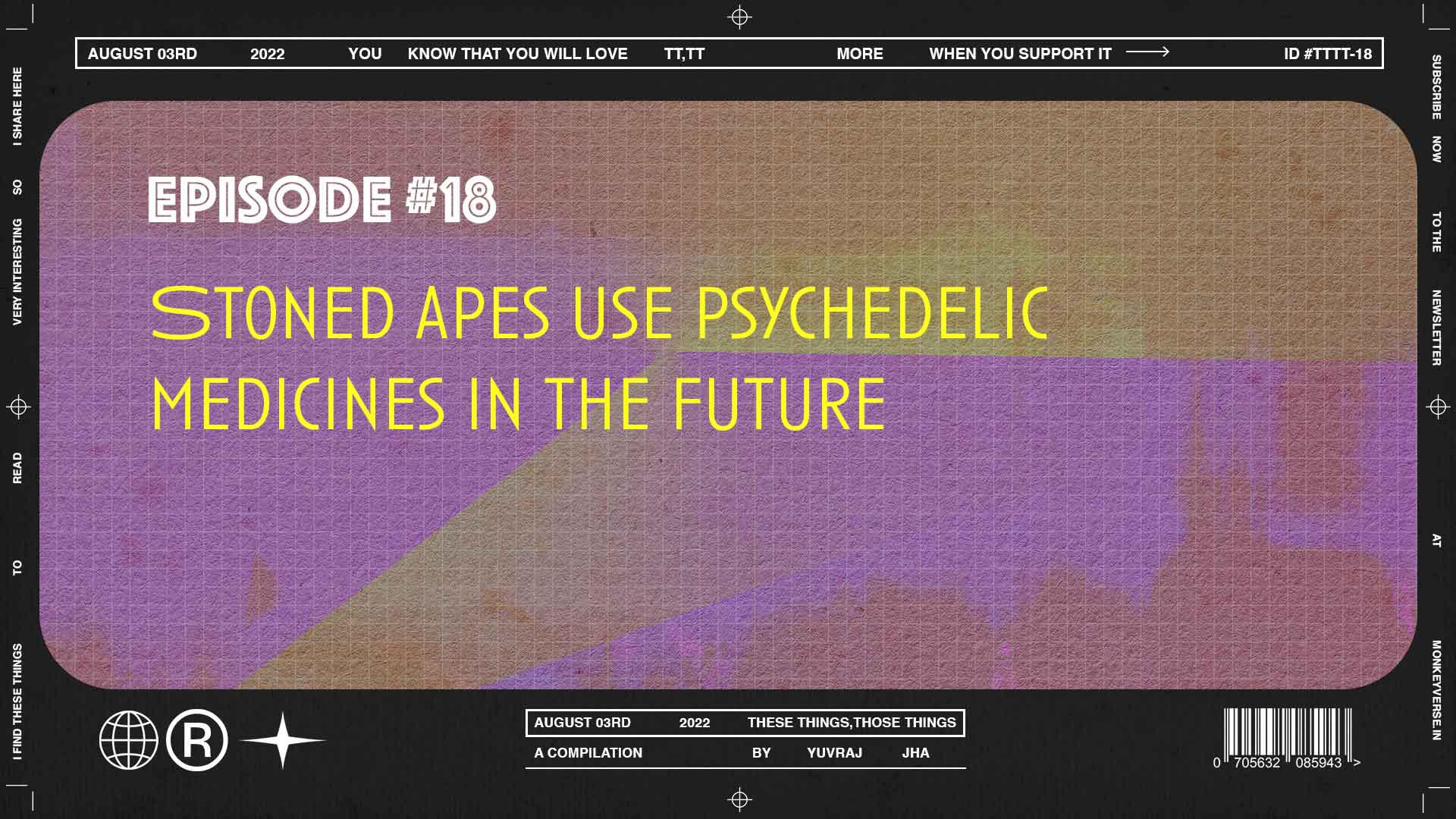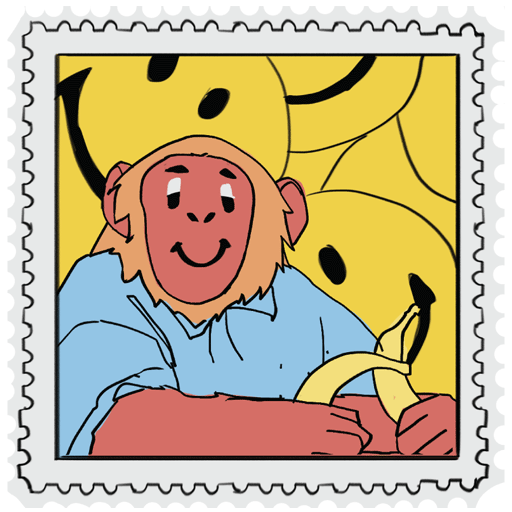
Stoned apes use psychedelic medicines in the future
There is no denying that psychedelics and cannabis have had deep cultural impact across time. For one, if the stoned ape hypothesis is true then we would have to thank the proverbial Mother for bringing us down the tree. But in so much as anything is ingested or smoked in a clinical or ritualistic setting there is no denying its benefits. Though there is a darker side to drug use — addiction and/or psychosis.
In my experience, addiction derails the individuals everyday experience often leading to decisions and behavioural malfunctions that then cascades into the loss of reality of some kind. To that, recently a Chhattisgarh BJP MLA Krishnamurti Bandhi suggested that the use of bhang and cannabis should be encouraged as alternatives to liquor/alcohol, and made a slightly exaggerated claim along with it, “Tell me whether a person who consumes bhang has ever committed rape, murder and dacoity?” I am not aware of the statistics on the ‘reduction of crime by consuming cannabis’, but cannabis and hemp have through time proven to be the plant sent by the gods themselves. Studies show their resilience across the board — from improving mental health to more robust and sustainable architecture. Which to my mind is totally crazy!
As the great Terence ‘Mushroom’ McKenna pointed out ‘there is something more to it than meets the eye’, beyond the veil of our thin existence. A knowledge of some kind — of the whole probably. But in the gobbledygook of modern existence we are quite disconnected with this relationship, while constantly heralding our fragile achievements. And to this psychedelics most definitely are a solution for aligning ourselves with a future where we coexist with the rest of the planet. Have a listen to — The History Of Shamanism, A talk by Terence McKenna
Speaking of shamanism, a very interesting book I had read years ago was the ‘The Sacred Mushroom and the Cross’ where John Marco Allegro relates the development of language to the development of myths, religions, and cultic practices in world cultures. He argues, through etymology, that the roots of many religions, lay in fertility cults, and their practices, such as ingesting visionary plants to perceive the mind of God.
And similarly, Terence McKenna though answering metaphysical concepts, refers to the betterment of the human experience as a whole and as an individual. But it is easy to get lost in the fogginess of the everyday experience and its constant high’s and low’s; where one it is fair to claim the, “So what! My life is shit!” benefit card and resort to methods that do not heal but instead create dependencies. And here lies the magic of cannabis and other psychedelics. Where alcohol fails to create a deep and meaningful existence, these experiences are well documented to have profound effects.
In fact the buddha might be a mushroom. Who knows!
Given the decades of research in medicine for mental health, psychedelics and their applications might in the near future see a complete overhaul. Do Psychedelics Need Psychiatrists? questions the role of psychiatrists in the future where psychedelics are not only legalised as pharmaceuticals, but potentially as substances decriminalised for everyday use.
Even the Global commission on Drug Policy claims that, “The global war on drugs is a failure and should be replaced by decriminalisation strategies grounded in science, health, security and human rights, according to a recent report .”
But let us see where this goes.
I am in the process of collecting research material around psychedelics and policy frameworks that exist or are in the pipeline in India. In case you come across something. Do share.


Leave a Reply